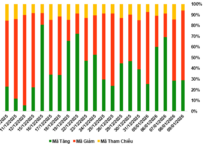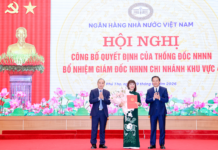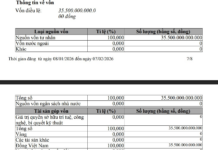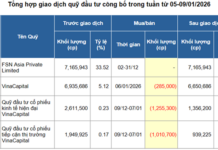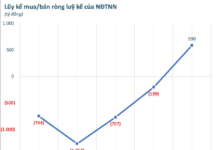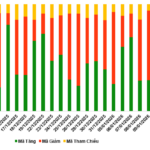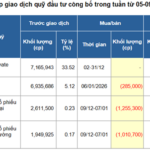At the thematic dialogue session on “Start-up – Innovation” within the framework of the Vietnam Private Sector Forum (VPSF) 2025, held on the afternoon of August 15, Dr. Nguyen Huu Xuyen, Vice President of the Institute of Science and Technology Policy and Strategy, shared that Vietnam has nearly 1 million enterprises and about 5 million business households. The target for 2030 is to have 2 million enterprises, which is an increase of more than 100% compared to the present; and by 2045, this number is expected to reach 3 million.
However, Mr. Xuyen frankly pointed out that only about 10% of these enterprises survive after 5 years of establishment. Among them, only 3% can be considered truly successful.
Additionally, 30% completely fail or go bankrupt after just 1-2 years, and a staggering 60% find themselves in a state of limbo, neither progressing nor failing, after 3-4 years of operation.
With the “quadruple pillar” consisting of Resolutions 66, 57, 59, and 68, Mr. Xuyen believes that this presents a prime opportunity for innovative start-ups and a boost for the private sector.
“In the past, agriculture helped us escape poverty, and currently, industry has enabled Vietnam to become a lower-middle-income country,” he emphasized. “In the future, science and technology, innovation, and digital transformation will be the three pillars that help Vietnam escape the middle-income trap and aim for the goal of becoming a high-income nation by 2045.”
 Many businesses face challenges related to capital and high-quality human resources when starting up. Photo: VPSF |
Discussing technology start-ups, Mr. Nguyen Xuan Luc, Vice Chairman of WATA Joint Stock Company, observed that the demand for digital transformation in Vietnam is rapidly increasing, both in the private enterprise sector and in government agencies. The awareness of the role of technology in enhancing productivity and governance efficiency is becoming more evident. In parallel, technologies such as artificial intelligence (AI), cloud computing, and the Internet of Things (IoT) are developing robustly, with implementation costs decreasing.
However, technology start-ups still face challenges, including a lack of high-quality human resources, limited capital for research and development, and a reluctance to change processes among a portion of customers.
“The big challenge now is the fierce competition with foreign companies with strong financial potential, while technology changes rapidly, requiring enterprises to continuously adapt,” Mr. Luc shared. However, opportunities remain abundant due to the vast potential for digitalization in manufacturing, healthcare, education, and services, along with the support of Resolutions 57 and 68.
The representative from WATA expressed that his company has benefited significantly from these two resolutions in terms of a favorable legal environment, tax incentives, infrastructure rental incentives, access to preferential capital for R&D, and opportunities to connect with research institutes and universities.
Based on practical experience, Mr. Luc proposed that the state should streamline the procedures for recognizing science and technology enterprises and shorten the approval time. Additionally, there is a need to design training programs for digital talent that are closely aligned with the demands of businesses. Concurrently, mechanisms should be established to facilitate the experimentation of new technologies in real-world environments.
On the business side, enterprises should proactively explore policies and invest in R&D from the initial stages, even on a small scale. Furthermore, it is crucial to leverage accumulated customer data, considering projects as “precious assets” that need to be stored, analyzed, and utilized to enhance products and improve competitive capabilities.
According to Ms. Pham Thi Bich Hue, Vice President of the Vietnam Young Entrepreneurs Association and Head of the Organizing Board of the Vietnam Private Sector Forum 2025, Resolution 57 of the Politburo on the breakthrough strategy for the development of science, technology, innovation, and national digital transformation, along with Resolution 68 on private economic development, serve as a compass and a solid political guarantee for the community of young entrepreneurs and pioneering enterprises.
Moving forward, the National Project on Innovative Start-ups will concretize these orientations, creating a legal corridor, financial mechanisms, and a collaborative environment to enable ideas to move from laboratories to the market, contributing to Vietnam’s vision of becoming an innovative nation by 2045, as shared by Ms. Hue.
Tam An
– 22:05 15/08/2025
“Leading the Region in Human Capital: Sacombank’s Commitment to Excellence”
For the fifth consecutive year, Sacombank has been recognized as one of the “Best Companies to Work for in Asia 2025” by the prestigious HR Asia magazine. This accolade is a testament to the bank’s unwavering commitment to its human resource development strategy and its dedication to fostering a modern, humane, and sustainable work environment.
The Digital Transformation Bill: Proposing 9 Prohibited Actions in the Digital Transformation Era
The Ministry of Science and Technology is drafting the Digital Transformation Act to enhance the legal framework for the country’s digitalization and create an interdisciplinary legal foundation for digital transformation in sectors embracing digitalization. Notably, the act includes provisions on prohibited actions during digital transformation.
“The Rise of Non-Performing Loans Stalls, Many Banks Improve Loan Quality”
The silver lining in the cloud of non-performing loans is that the upward trajectory of total bad debt at the end of the second quarter showed signs of abating. This improvement can be attributed to a combination of factors: prudent monetary policies, a cautious approach to credit strategies, and the gradual recovery of the economy. As a result, many banks have successfully enhanced their loan quality and mitigated bad debt risks.
“G-Group and MBV Collaboration: Unlocking the Power of Tech and Finance for Digital Transformation”
On August 6, G-Group Technology Corporation and the Vietnam Modern Commercial Joint Stock Bank (MBV) signed a comprehensive strategic cooperation agreement, forging a long-term partnership between two leading enterprises in the fields of technology and finance. This collaboration aims to empower and accelerate comprehensive digital transformation.

